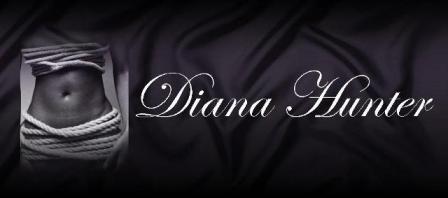Criteria. It’s amazing how often we live and die by our
criteria. Why do you like action movies but not horror? What do you look for in
buying a new car? How do you define friendship? What makes a meaningful life?
Whether consciously or not, we set our criteria and often do not deviate from
our set list.
As writers, we’re used to being judged. Getting reviews,
both good, bad and indifferent, is a part of our lives. Critics evaluate our
books and write reviews according to their tastes. Sometimes they tell us their
criteria outright, but more often the judgments are pronounced without ever
defining the standards against which we are being measured. For every person
who likes our work, there are a dozen who don’t and four of them will be vocal about
it. It’s okay, it’s part of the job.
But what about in our writing? How do we use sets of criteria when writing our books? In more ways than you
realize.
The first and most obvious choices come in determining
genre. Would this story work better as science fiction or fantasy? A
traditional romance or an erotic romance? A thriller or a murder-mystery? Each
genre has its own set of rules (criteria) and when we choose the format of the
book, we’ve made our first decision as the Evaluator.
Then there’s the actual creation of character. Will the
protagonist be male or female? Will there be one of each? Two of each? Tolkien
sticks with male for the gender question but goes for numbers (nine in the
Fellowship alone). What about hair color? Race? Age? What is his/her
background? Will it matter to the story? What’s truly important for the reader
to know?
Authors see these decisions as creativity. In the
non-fiction world, they are criteria. Based on your creative decisions, others
read the work and project their own expectations onto what you’ve written. If our
stories agree with their expectations, the reader forms a favorable opinion of
the story. If they don’t...well, that’s where bad reviews come from.
We act as the Evaluator for every situation we put characters
in. We make them assess, judge, and act according to the criteria we (the
authors) have predetermined for them. They choose a blue shirt over a white one
because we decided they like the color blue. They jump in front of busses to
save puppies, leap tall buildings in a single bound and get the girl in the end
because we’ve set up criteria determining what a hero is and how he should
behave.
Take Tulsidas, for example. He lived in the late 1500’s,
early 1600’s. When he first read Valmiki’s Ramayana*, he judged it according to
the standards of his day for how a hero should act. When Ram, for example,
shoots an opponent in the back in Valmiki’s telling, Tulsidas reacted by
rewriting the scene and creating his own version where Ram confronts the opponent
face-to-face. The end result is the same in both works: Ram kills his opponent.
Two ways to get there depending on your criteria for heroes.
Which also proves my final point: Criteria change over time.
As we grow and change, so do our tastes in what we like or
dislike. I said at the top of the post that, consciously or not, we all have
criteria by which we judge our lives, from the tiniest interactions to the Big
Decisions. Why should we expect people to react to our stories in the same way
from year to year and from country to country? Heck, from male to female for
that matter. Or subdivide into age groups. What is hot this year, is forgotten
the next. The lesson? Don’t try to second-guess the fickle public. Write tight.
Write well. Write what you love.
And doing that, of course, means making your characters
grapple with those same decisions we all face. Why does your hero prefer
brunettes over redheads? Why does your heroine drive a Spitfire instead of a
mini-van? How is it these two separate people are actually friends (Felix and
Oscar, anyone?). What are the criteria your characters
set to make their lives meaningful?
Activity
First, make a list of all the criteria you use when judging
a book. Be specific. Don’t just say, “it’s exciting.” That’s too vague. Say, “I
like it when the hero’s life is in danger.” Try to come up with at least 10.
Then choose a work you’ve nearly finished writing. Length
doesn’t matter. Make two lists using that wip:
List 1. What criteria did you choose (subconsciously or
consciously) before you started writing the story regarding genre, character
and plot?
List 2. What are the criteria your characters use to
determine if their lives have meaning?
Look over your lists. How do you feel about your choices?
How many were you aware of as you made them? And most importantly, how do these
lists compare to how you judge books you read?
(This is part of the
“What Role do You Play?” series. Previous roles can be found here.)
My initial goal was to publish all these in a workbook format but other stories are crowding for time. These will remain workshops on my blog until future notice! If you're finding these workshops useful, please consider donating to the cause. This is how I make money writing. :)

No comments:
Post a Comment